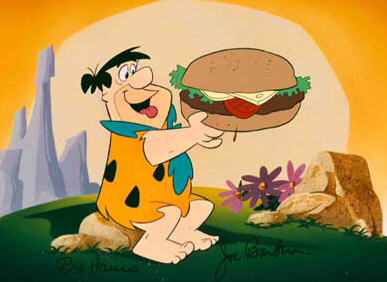This is adapted from the Atlantic, which parsed the conclusions of the UK’s Royal Society, and I agree with almost all of them.
1. Refrigeration
The use of ice to lower the temperature of and thus preserve food dates back to prehistoric times. Machine-based refrigeration, however, was developed as a process starting in the mid 18th century and moving into the 19th. Domestic mechanical refrigerators first became available in the early 20th century. Throughout its long history,  refrigeration has allowed humans to preserve food and, with it, nutrition. It has also allowed for a key innovation in human civilization: cold beer.
refrigeration has allowed humans to preserve food and, with it, nutrition. It has also allowed for a key innovation in human civilization: cold beer.
2. Pasteurization / sterilization
Useful for the prevention of bacterial contamination in food, particularly milk.
3. Canning
4. The oven
The earliest ovens, found in Central Europe, date from 29,000 BC.
5. Irrigation
6. Threshing machine/combine harvester
7. Baking
8. Selective breeding / strains
9. Grinding / milling
11. Fermentation
Beer. More formally, “the conversion of carbohydrates to alcohols and carbon dioxide or organic acids using yeasts, bacteria, or a combination thereof, under anaerobic conditions” — which leads to such products as alcohol, wine, vinegar, yogurt, bread, and cheese. Mostly, though: beer.
12. The fishing net
13. Crop rotation
14. The pot
15. The knife
16. Eating utensils
17. The cork
18. The barrel
19. The microwave oven
20. Frying

